Owning a dog that behaves consistently in any situation brings peace of mind. No one wants to deal with unpredictable barking, excessive energy, or sudden aggression. A well-behaved dog blends effortlessly into daily life, making walks, visitors, and even travel stress-free.
Many dog owners struggle with training, wondering if their pets will settle down. Choosing a breed known for stable behavior eliminates much of that worry. These dogs adapt easily, whether in a busy household, a quiet apartment, or a family setting. They listen, respond well to training, and remain calm when it matters most.
You’re in the right place if you’re looking for a breed that won’t cause unnecessary frustration. Let’s explore the most consistently well-behaved dog breeds and what makes them the perfect choice.
Did you know?
Dogs with predictable temperaments are often chosen as therapy or service animals, providing comfort and stability in hospitals, schools, and even airports.
Consistently Behaved Dog Breeds
1. Labrador Retriever

Few breeds match the Labrador Retriever’s steady and reliable nature. Their well-balanced temperament, sharp instincts, and natural eagerness to follow commands make them a top choice in service work, hunting, and countless other roles requiring discipline and adaptability.
With boundless energy, Labradors thrive in active lifestyles. They enjoy swimming, hiking, and retrieving games, making exercise essential to their routine. Keeping them engaged prevents destructive tendencies and ensures they remain well-mannered in various environments.
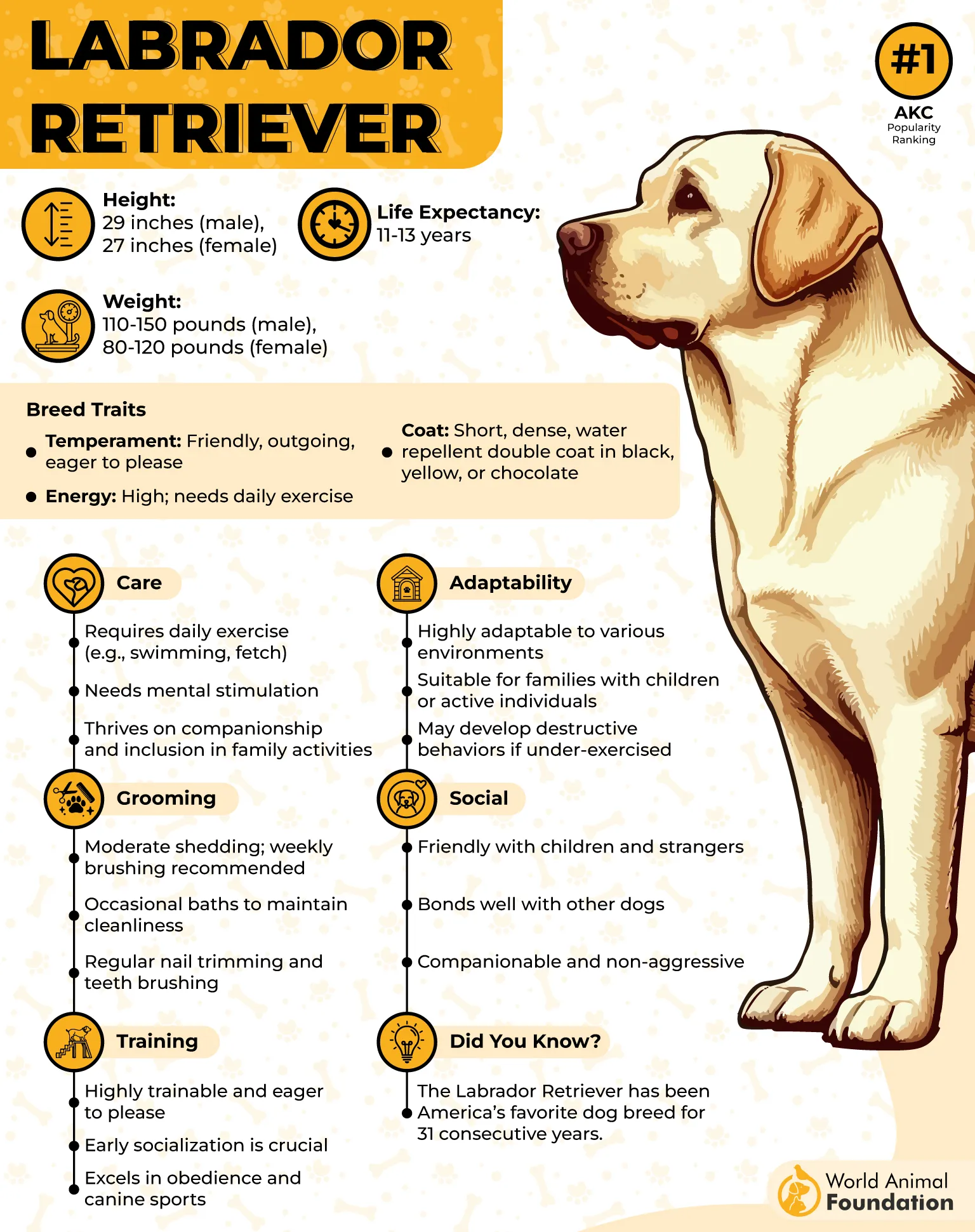
Their intelligence shines in training. Labs respond exceptionally well to positive reinforcement, learning commands with ease. Their enthusiasm for structured tasks makes them a favorite in search-and-rescue operations, where split-second decision-making and unwavering focus are critical.
According to AKC, a Labrador’s coat is water-resistant and designed for outdoor adventures. Weekly brushing keeps shedding manageable, while occasional baths maintain cleanliness. Regular ear checks prevent infections, especially for those frequently exposed to water or damp conditions.

Nutrition plays a key role in their long-term health. Portion control is essential, as Labs have an appetite that often outpaces their metabolism. A protein-rich diet with joint-supporting nutrients keeps their bodies strong and energy levels steady.
Fun Fact
Labrador Retrievers are known for their gentle mouths, capable of carrying delicate objects—like eggs—without cracking them, a skill developed through their history as retrieving dogs.
2. Golden Retriever
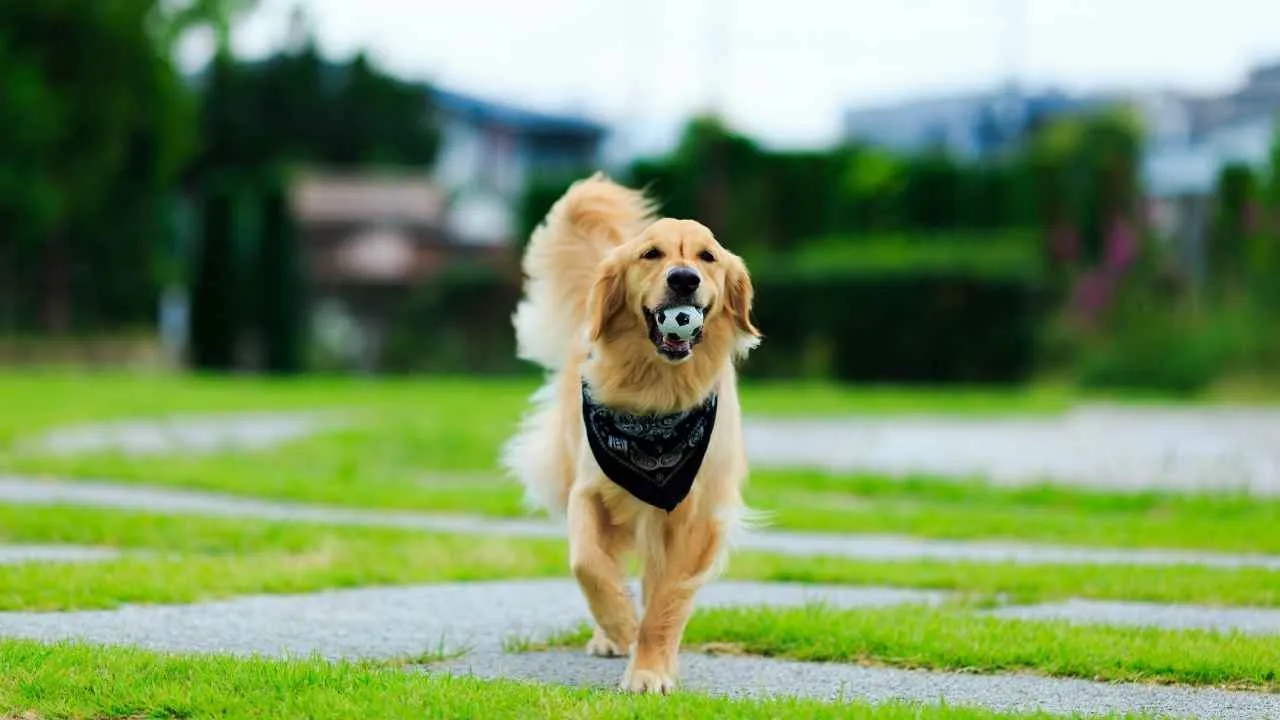
Golden Retrievers are the definition of consistent behavior, known for their steady temperament and natural grace. Their composed nature makes them exceptional in therapy work, search-and-rescue missions, and other roles requiring patience, reliability, and a calm presence.
Social by nature, they thrive in interactive settings. Whether engaging in obedience training, learning advanced tricks, or participating in canine sports, Golden loves structured activities. Their enthusiasm for learning makes training both enjoyable and highly effective.

A well-maintained exercise routine keeps them in peak condition. Golden Retrievers enjoy activities that challenge their endurance, from swimming to agility courses. Regular movement supports their joints, keeping them agile and energetic well into their senior years.
Their iconic coat requires dedicated grooming. Brushing a few times per week minimizes shedding and prevents matting. Paying attention to seasonal coat changes ensures they remain comfortable, whether in cold temperatures or during warmer months.
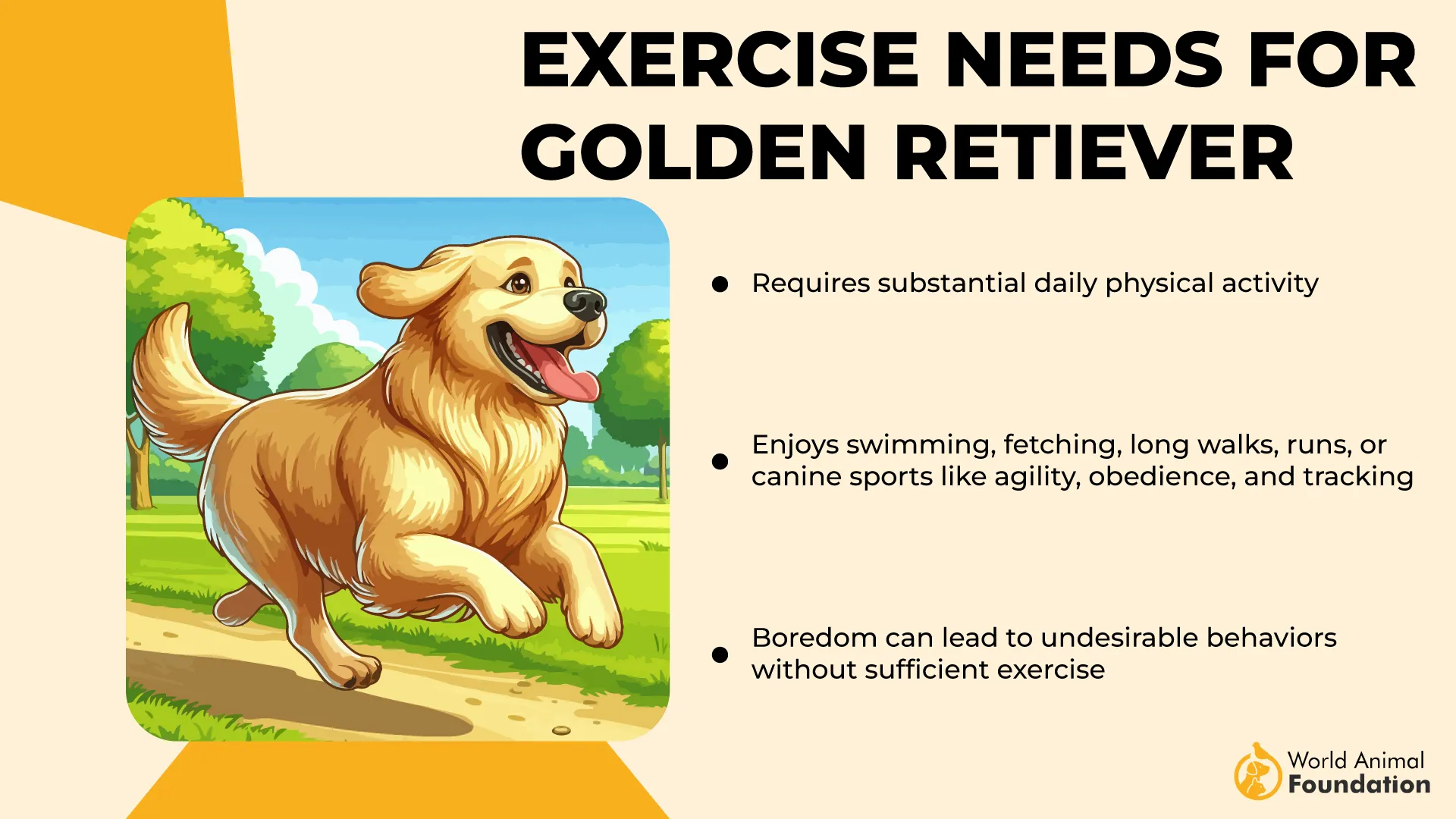
Responsible breeding significantly impacts their health. Golden Retrievers are prone to certain genetic conditions, making monitoring joint health, heart function, and overall wellness essential. Routine checkups, proper nutrition, and early detection help maintain their well-being.
Fun Fact
Golden Retrievers have an instinctual love for carrying things in their mouths, often picking up random household objects to hold them.
3. Poodle

Poodles stand out with their intelligence, elegance, and impressively consistent behavior. Their ability to perform complex tasks with precision makes them highly trainable, excelling in competitive dog sports, search-and-rescue missions, and specialized service roles requiring advanced problem-solving skills.
Mental stimulation is as crucial as physical exercise. Puzzle toys, scent work, and obedience challenges engage their sharp minds. A bored Poodle may find its own entertainment, so structured activities ensure they remain focused and well-behaved.
Poodles shed minimally, making grooming a top priority. Their curly coat needs frequent brushing and trimming to prevent tangles. Professional grooming sessions maintain coat health while allowing owners to choose various stylish and functional cuts.
Adaptability is a defining trait. Whether in urban apartments or large estates, Poodles adjust effortlessly. Their awareness of their surroundings, combined with an even temperament, ensures they remain composed in quiet and high-energy environments.
A well-balanced diet supports their physical and cognitive function. High-quality protein keeps their muscles strong, while omega-rich foods enhance coat health. Proper hydration and portion control prevent digestive issues, promoting overall well-being.
Fun Fact
Despite their refined appearance, Poodles were originally bred as water retrievers, and their signature coat clips were designed to improve swimming efficiency while keeping vital joints warm.
4. Bernese Mountain Dog
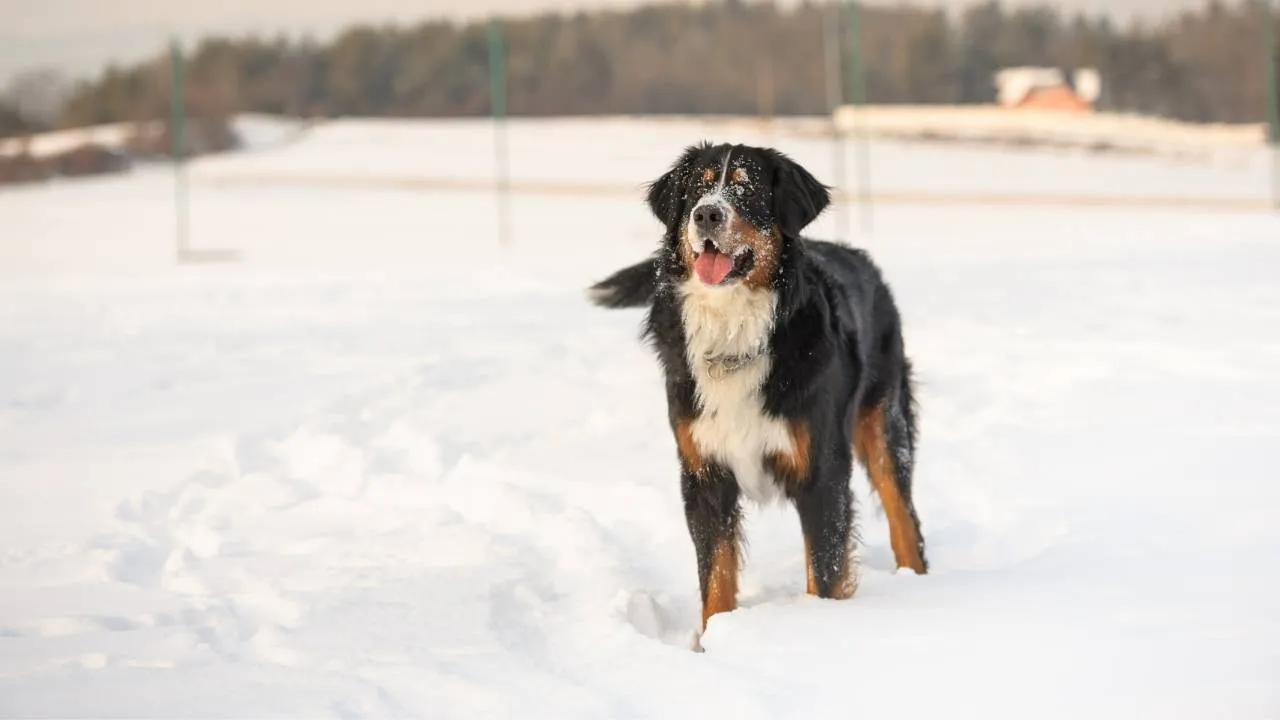
A naturally composed and steady-natured breed, the Bernese Mountain Dog is calm while maintaining an alert presence. Bred for farm work, it excels in various tasks while adapting effortlessly to structured environments. Its reliability makes it a trusted working breed.
Cold weather enhances the Bernese Mountain Dog’s endurance, thanks to its thick, double-layered coat. However, warm climates require special care, including shaded rest areas and hydration. Regular exercise maintains its muscular build while mental stimulation keeps it engaged, preventing boredom-induced behaviors.
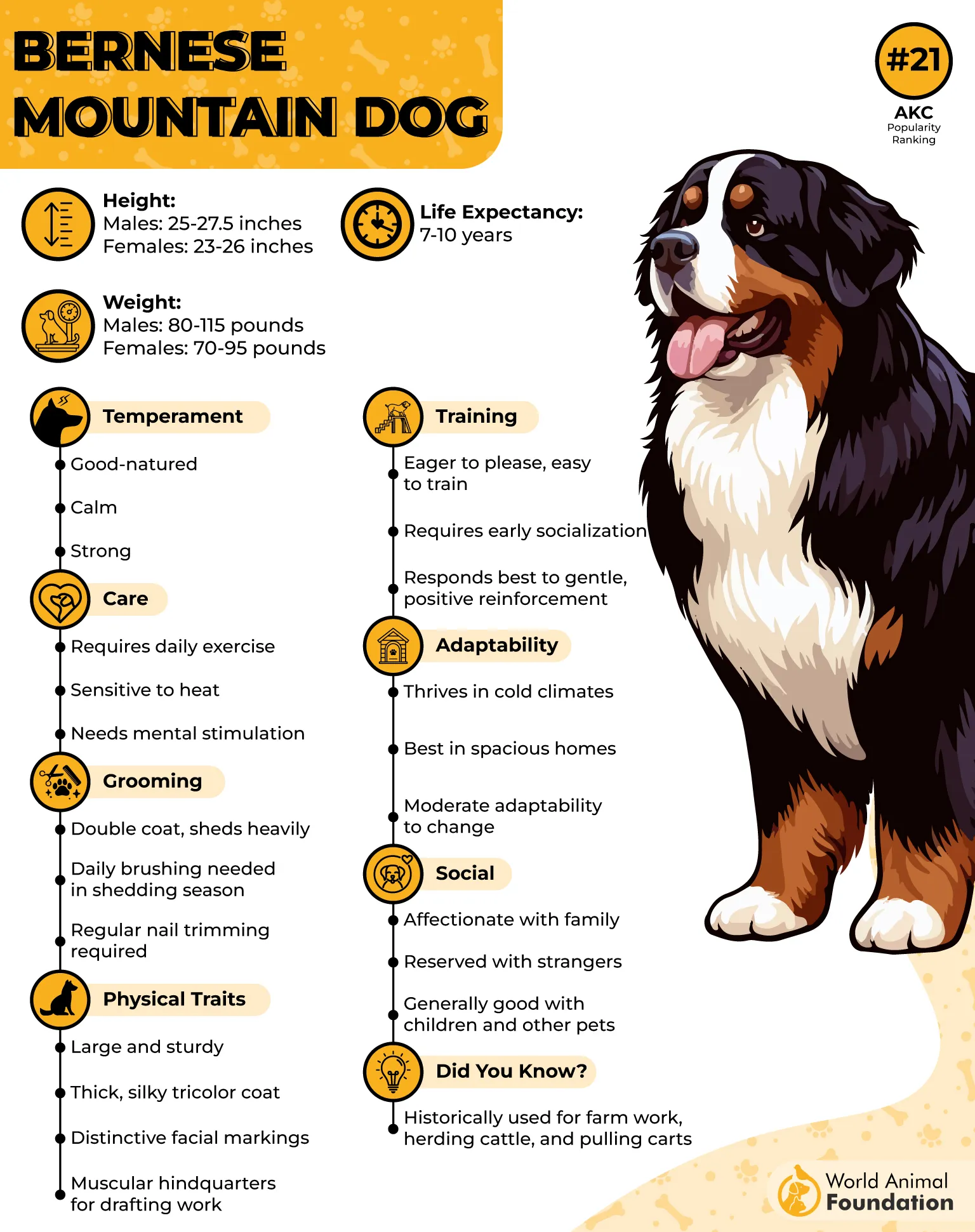
Social by nature, the Bernese Mountain Dog interacts well with familiar faces. Early training ensures confidence in diverse settings, reinforcing controlled responses to new experiences. Obedience comes naturally when provided with consistent reinforcement, fostering a predictable and steady behavioral pattern in everyday life.
A diet rich in high-quality protein supports muscle health, while controlled portions prevent excessive weight gain. Joint supplements are often recommended to maintain mobility. Structured feeding schedules keep digestion in check, ensuring optimal energy levels for daily activities.
According to WebMD, grooming routines involve regular brushing to manage shedding, especially during seasonal coat changes. Routine veterinary care helps monitor genetic predispositions such as hip dysplasia. A well-maintained Bernese Mountain Dog thrives in active yet structured living arrangements where predictability meets its steadfast personality.
Fun Fact
The Bernese Mountain Dog’s tricolor coat isn’t just for looks—it plays a practical role in cold Swiss climates, providing both camouflage in rocky terrain and extra warmth during long workdays.
5. Bichon Frise
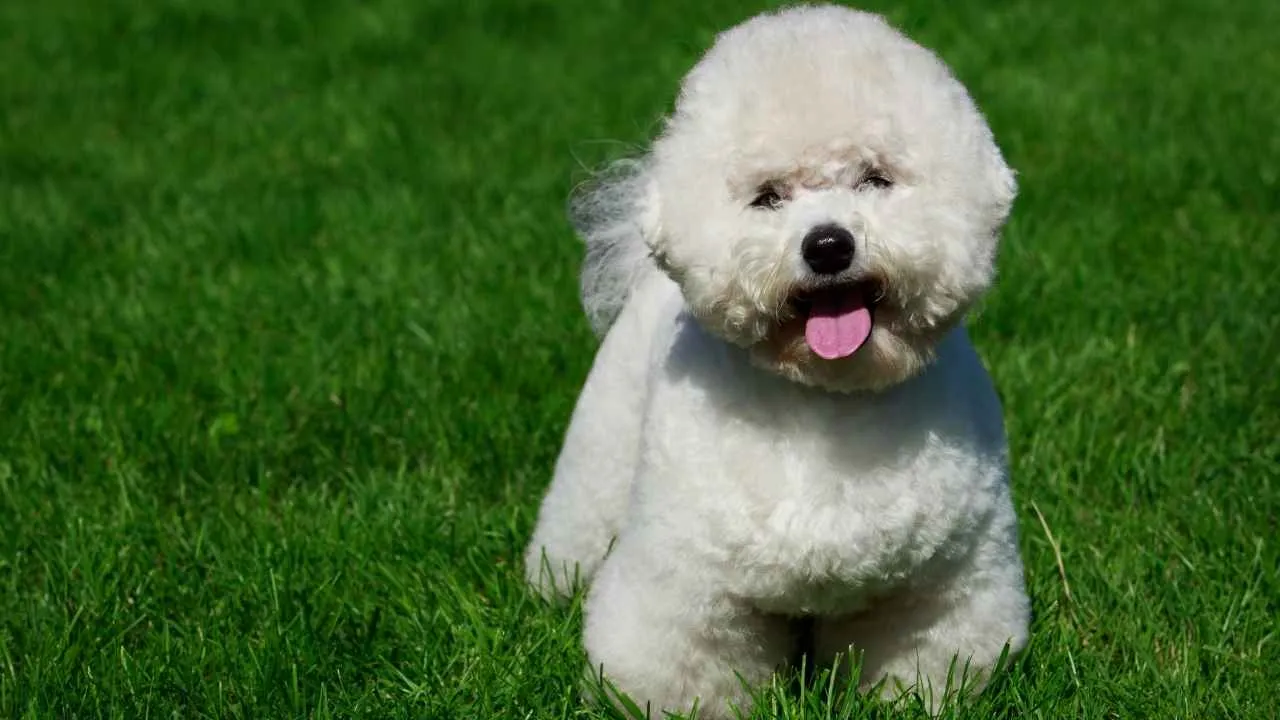
Bright, cheerful, and predictably well-mannered, the Bichon Frise exhibits a consistently balanced temperament. Despite its playful energy, it maintains composure in structured environments, making it a remarkably easy-going breed with an adaptable nature suited for various living spaces.
Compact yet lively, the Bichon Frise enjoys interactive activities without excessive physical exertion. Moderate exercise, including indoor play sessions, suffices to meet its energy needs. This breed thrives in routine-oriented households where familiarity fosters behavioral stability and confidence.
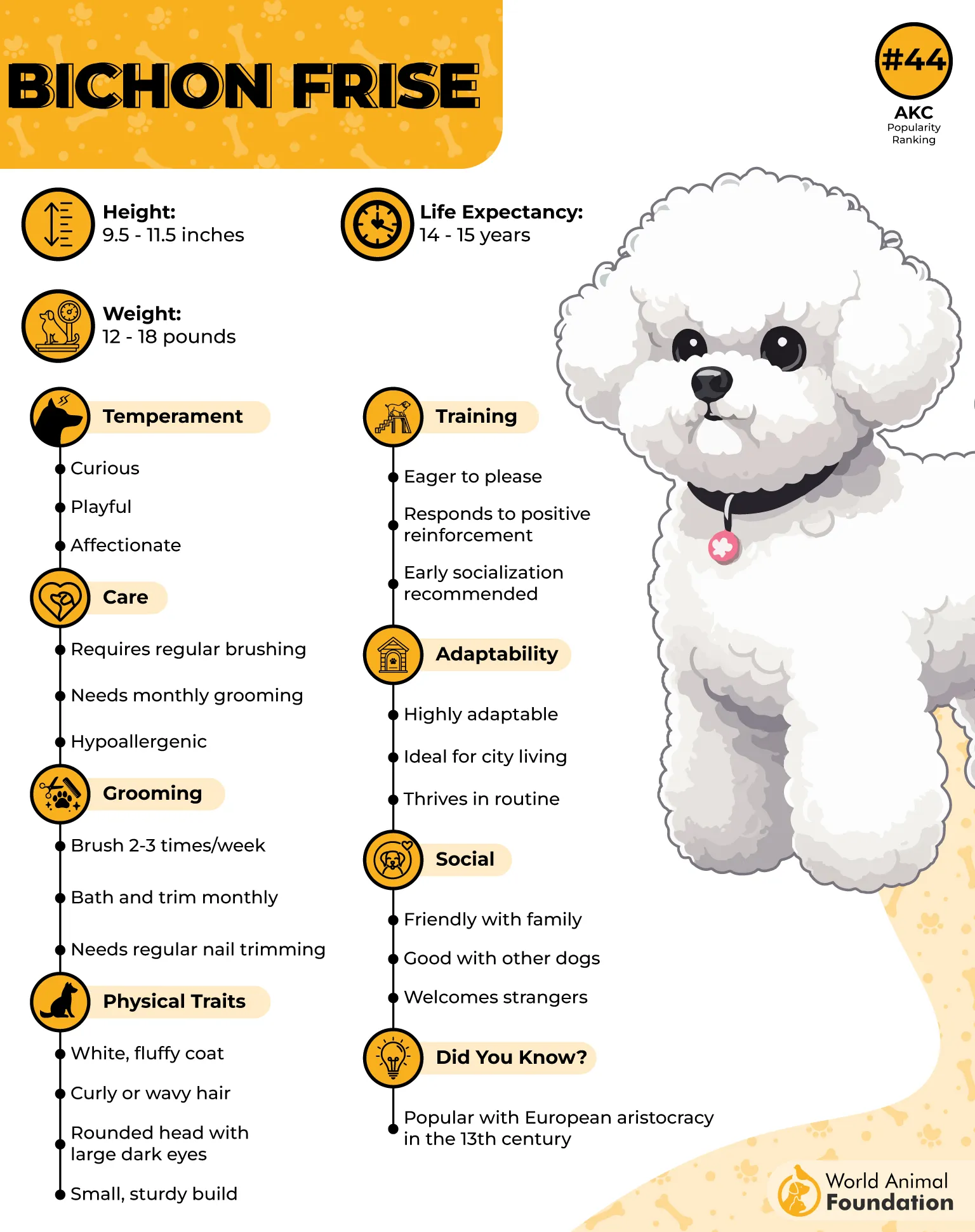
Hypoallergenic by nature, the Bichon Frise boasts a soft, curly coat requiring frequent maintenance. Professional grooming prevents matting, while regular brushing keeps its fur pristine. Unlike seasonal shedders, this breed’s consistent coat growth requires routine trims to maintain a tidy appearance.
Training a Bichon Frise requires positive reinforcement and clear communication. It responds well to structured routines, quickly adapting to commands with enthusiasm. Early socialization refines its ability to engage with new experiences, ensuring a well-adjusted demeanor in varied environments.
Health-conscious care includes monitoring tear staining, dental hygiene, and skin sensitivity. Routine vet visits support long-term well-being, ensuring this small but resilient breed maintains its spirited personality while aging gracefully with proper nutrition and preventive care.
Fun Fact
The Bichon Frise was once a favorite among European royalty, often seen accompanying nobility in courts where their refined manners and charming personalities made them standout companions.
6. German Shepherd

Renowned for unwavering discipline, the German Shepherd embodies a structured and consistent temperament. Bred for working roles, it retains a high level of mental acuity, excelling in tasks requiring precision and dependability, making it one of the most versatile breeds worldwide.
Exercise is integral to a German Shepherd’s well-being, incorporating agility drills, endurance runs, and obedience training. Mental engagement through task-driven challenges enhances focus, ensuring its intelligence remains sharp and responsive to new situations without unpredictability.

Genetically wired for alertness, this breed possesses keen situational awareness. Its protective instincts develop naturally, balancing attentiveness with control. Early boundary-setting fosters a disciplined approach to security, reinforcing its ability to assess threats without unnecessary aggression.
Nutritional balance is key to sustaining its muscular frame and energy levels. A diet emphasizing lean protein, joint-supporting nutrients, and controlled calorie intake prevents health concerns such as excessive weight gain, ensuring longevity and peak physical performance throughout life.
According to PetMD, shedding occurs year-round, with seasonal increases. A structured grooming routine, including de-shedding tools and consistent brushing, manages loose fur effectively. Regular health screenings monitor genetic predispositions, supporting a proactive approach to overall wellness for this highly reliable breed.
Fun Fact
German Shepherds played vital roles in World War I, assisting in search-and-rescue, message delivery, and medical aid, proving their intelligence and reliability in high-pressure environments.
7. Cocker Spaniel

Well-balanced in demeanor, the Cocker Spaniel maintains a structured temperament while embracing an energetic lifestyle. Historically bred for hunting, its ability to stay focused while navigating changing environments highlights a steady behavioral pattern that aligns with its responsive nature.
Enthusiastic yet composed, the Cocker Spaniel enjoys a mix of physical activity and structured downtime. Whether engaging in retrieving exercises or enjoying relaxed indoor settings, it transitions effortlessly between playfulness and calmness, reinforcing a predictable temperament in various situations.
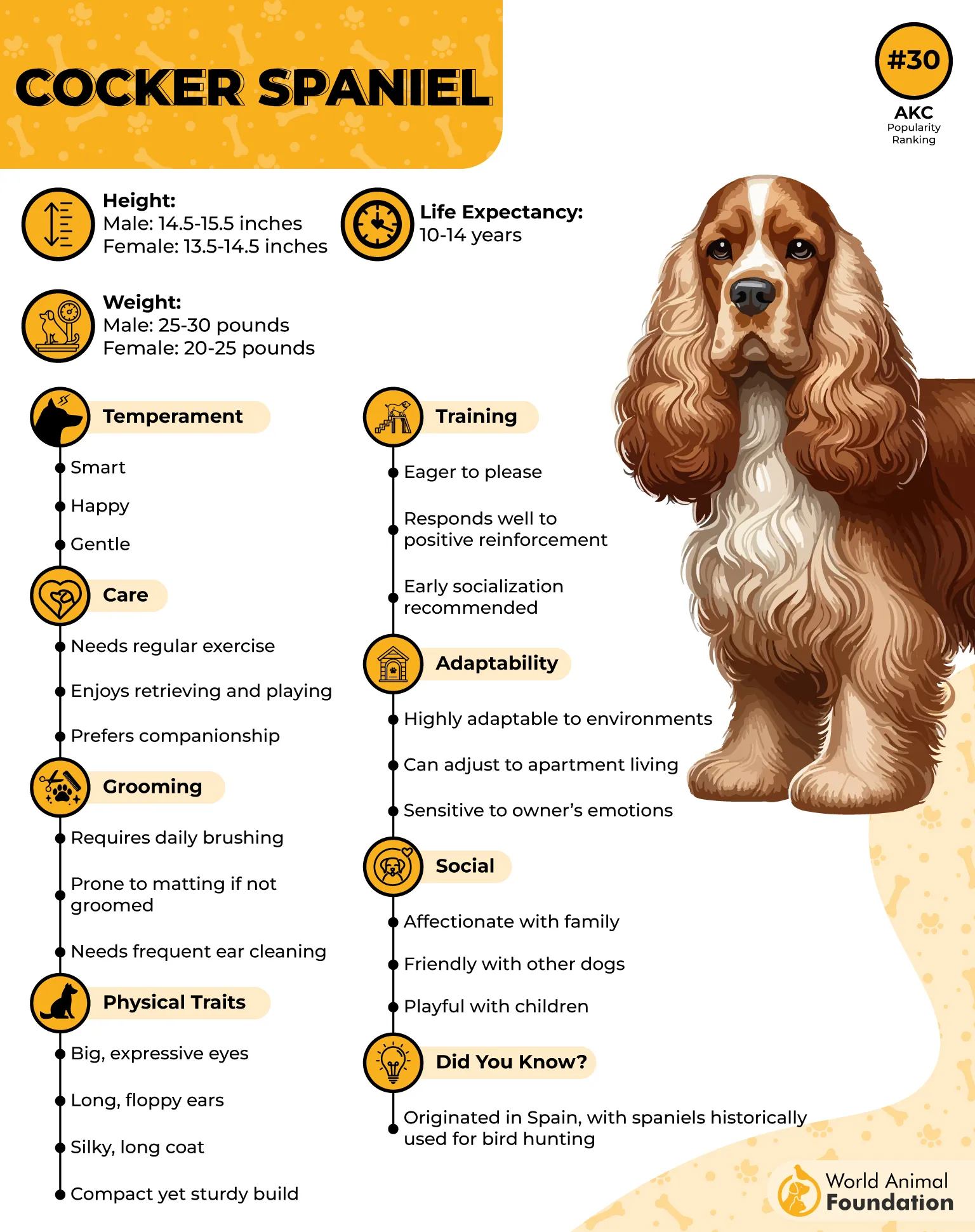
Eager to please, the breed responds well to positive reinforcement training. Commands are learned quickly, with retention strengthened through interactive sessions. Early exposure to diverse settings ensures adaptability, reinforcing the breed’s consistently cooperative nature in both familiar and unfamiliar scenarios.
A nutrient-rich diet supports a Cocker Spaniel’s active lifestyle while preventing weight fluctuations. High-quality proteins sustain muscle tone, while omega fatty acids contribute to coat health. Measured feeding routines help regulate metabolism, ensuring a steady energy supply throughout the day.
Silky fur requires regular upkeep to prevent tangles and matting. Routine ear checks minimize infections, a common concern due to its floppy ears. Regular vet visits address breed-specific sensitivities, promoting a long, healthy life with well-maintained consistency in its daily care.
Fun Fact
The Cocker Spaniel’s name originates from its hunting specialty—woodcock retrieval—showcasing its historical role as a skilled and dependable working breed in the field.
Conclusion
Choosing a consistently well-behaved dog makes everyday life easier and more enjoyable. These popular dog breeds require less correction, adapt quickly to routines, and remain calm in different environments. Their steady nature brings a sense of reliability, making them ideal for families, professionals, and potential dog owners. Many of these dogs are among the most popular family dogs, celebrated for their predictable nature and seamless integration into daily life.
Breeds like the Shih Tzu, Cavalier King Charles Spaniel, and Boston Terrier are also known for their steady nature and adaptability, even though they weren’t specifically highlighted.
A well-mannered dog allows for stress-free outings, smooth guest interactions, and a peaceful home environment. Their good behavior reduces uncertainty, making training more effective and daily responsibilities more manageable. Owners can focus on bonding rather than constant discipline with the right breed. Even hunting dogs and other dogs can display obedience with proper training, as some studies show a low percentage of behavioral issues among obedient dogs.
These dogs offer the perfect balance of companionship and control. Their ability to stay composed in various situations makes them a trusted choice. Selecting the right breed ensures a lifetime of stability and harmony.


